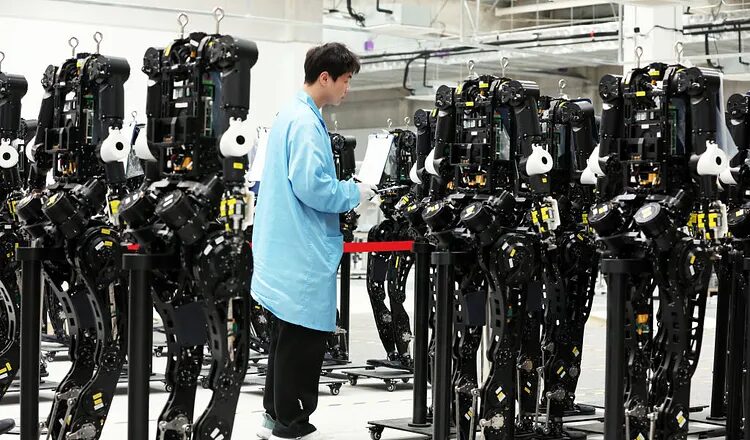
Patrick McGee: China’s Robots vs. America’s Chatbots
In his latest article for The Free Press, WWSG exclusive thought leader Patrick McGee argues that the global AI competition isn’t just about building the…
Thought Leader: Patrick McGee

By Evan Feigenbaum (original source National Interest)
“For most of the past four decades, American presidents have presumed that a “successful” China would be good for the United States. But this is no longer the case. Today, that long-standing consensus is breaking down in the face of several dynamic changes. These include China’s rapid military buildup, its unprecedentedly quick industrial and economic development, an increasingly assertive Chinese foreign policy, and new competitive pressures on the United States’ economy and fiscal health.
Even the most sanguine voices now view the U.S.-China relationship as competitive, and urge the United States to respond decisively, if carefully, especially to Beijing’s security behavior in Asia. Among Washington foreign-policy elites and a growing number of U.S. companies, China is viewed as a strategic competitor, a military threat in Asia and, ultimately, a possible adversary. Indeed, during the election campaign, Donald Trump pledged to adopt a more confrontational approach toward China, not least by threatening to impose significant tariffs on its exports to the United States. But Trump is by no means alone in this regard. Across the American political spectrum, from right to left, a new and more skeptical consensus about the rise of Chinese power is eroding the aspirational and optimistic view that prevailed for more than forty years.”
Click here to read more
Patrick McGee: China’s Robots vs. America’s Chatbots
In his latest article for The Free Press, WWSG exclusive thought leader Patrick McGee argues that the global AI competition isn’t just about building the…
Thought Leader: Patrick McGee
John Kelly: The Impact of Veterans
10News Anchor John Becker sits down with Gen. John F. Kelly to chat about the impact of veterans and how they work to serve their…
Thought Leader: John Kelly
Erika Ayers Badan: How Great Teams Actually Work
On this episode of Unsolicited Advice, we talk about what actually makes teams work. How clarity beats charisma. Why initiative matters more than experience. Why…
Thought Leader: Erika Ayers Badan

